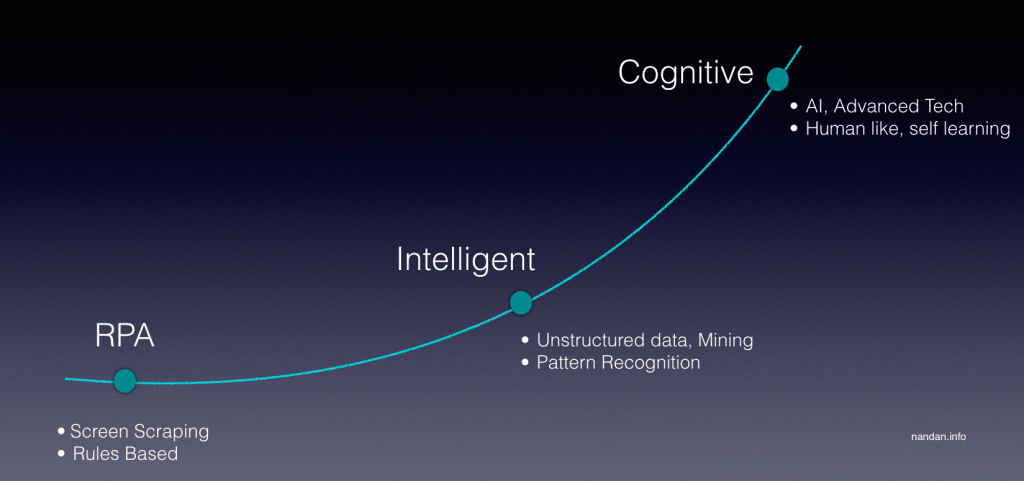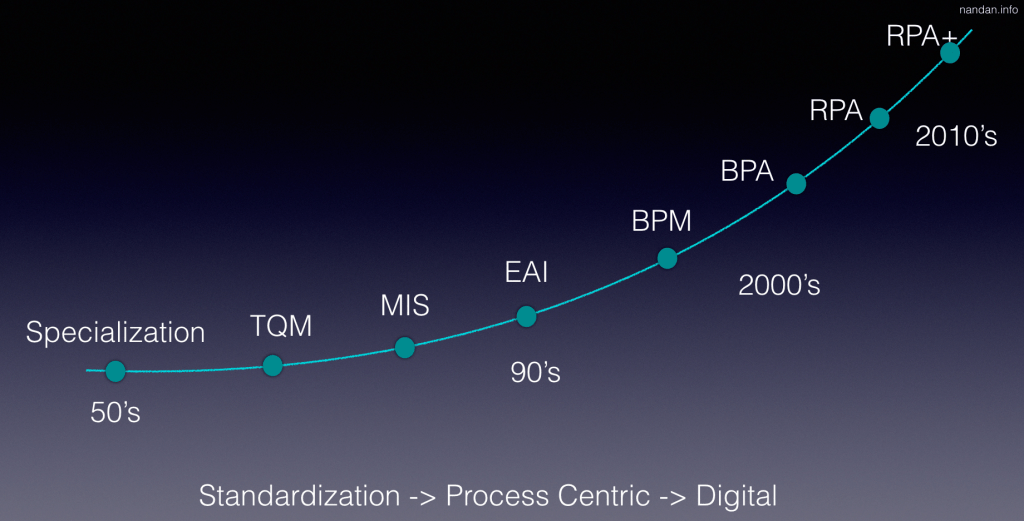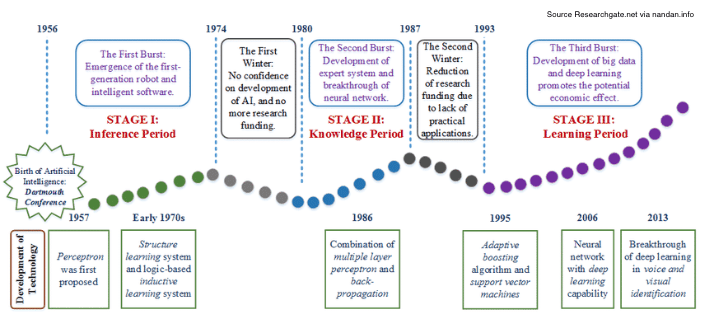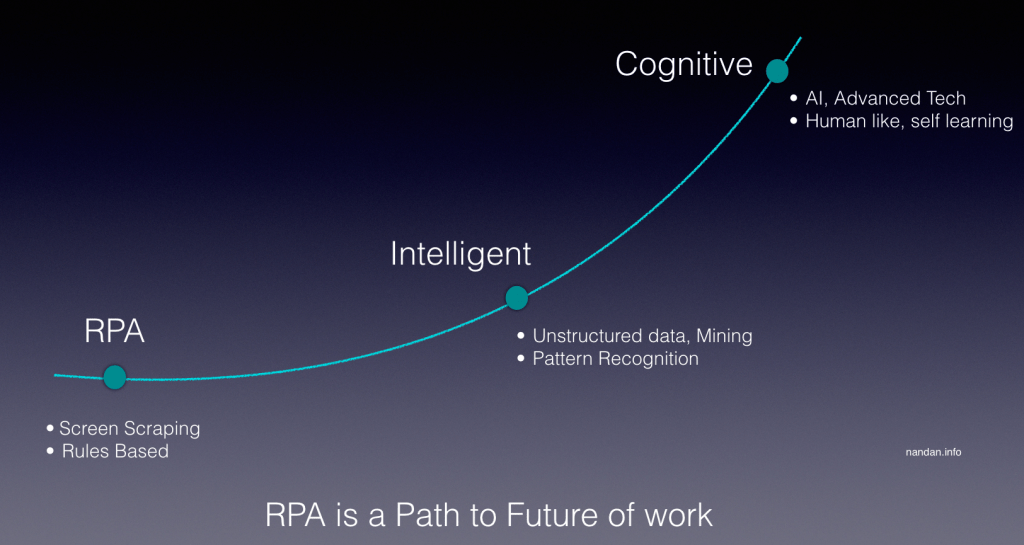Let’s start with the standard narrative on RPA.
RPA then Cognitive
RPA is supposed to be the “gateway drug” to Intelligent Automation and beyond.
RPA is low-level stuff – screen scraping and rule-based. Then there’s Intelligent automation (or similar term) which includes pattern recognition and finally, there’s cognitive where you move to human-like self-learning.
So some people have come to think that it’s all neat little boxes where you flow from one to another both in terms of a career as well as how you implement automation.
While the overarching narrative is correct, there is some misunderstanding though.
Career path
If you are into RPA thinking that you would first learn RPA and then move into AI, then I think that is a wrong assumption.
RPA is more of a process Improvement track which we have been on for more than 30 years now. It’s a continuation of the Journey of TQM, EAI, BPM and BPA. To me, RPA is a career in process improvement and automation.
Modern AI has a similar but different track which starts with the Dartmouth summer research project Followed by multiple AI Winters finally culminating in deep learning and beyond.
So, AI is a completely different career track which impacts a lot more than automation. If you like to be on AI, you should go pursue that track.
Implementation
In terms of implementing RPA, some people tend to think that you do RPA first and then you get to intelligent Automation and then Cognitive. I think that’s another misunderstanding. You do not need to wait to incorporate any technologies that suit your automation.
Include Cognitive right from the beginning. In fact, include all available technologies that can help with the use case being automated.
The good news is that you can do that with RPA. You always could – we always used an ecosystem of technologies including internal IP for automation projects.
RPA vendors are making it easier to include emerging technologies as drag-and-drop. They are extending the low code simplicity to include other technologies. So go ahead and include what’s appropriate for your automation now.
RPA is a path to Future of Work
RPA is a way to introduce Digital labor into the Enterprise. RPA is a path to Process Improvement and Automation. So for me, RPA is a path to the future of work where humans work with Bots.
As a career, if you like to stay in automation then RPA is a good bet. If you like to pursue AI, you probably should take up AI separately. You can also do both but you would mostly be better off specializing in one of them.
While you implement RPA, don’t get into the “first RPA then Cognitive” narrative – it is not a sequence. Include Cognitive right from the beginning. Choose fairly decent RPA platform and design your ecosystem including Cognitive now.




If IA must have an antecedent, ACM (Adaptive Case Management)is a better pick.
The contribution of ACM was a reduction in BPM rigidity. Processes became Process Fragments, goals/objectives moved from plan-side to a a run-time workflow/workload platform where background BPM provided orchestration and where methods like RALB (Resource Allocation, Leveling and Balancing) allowed users to micro-schedule their tasks and supervisors to level and balance workload across users/Cases. FOMM (Figure of Merit Matrices from Rand Corp) allowed Case Managers to make non-subjective assessments of progress toward meeting Case goals/objectives.
Agree totally with “RPA is a path to the future of work where humans work with Bots”